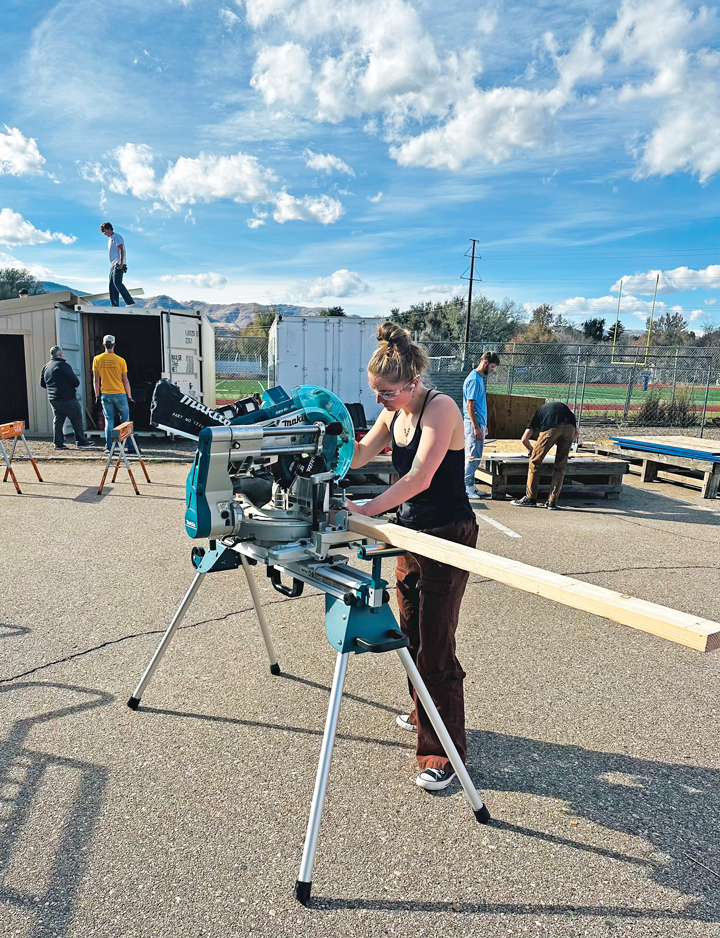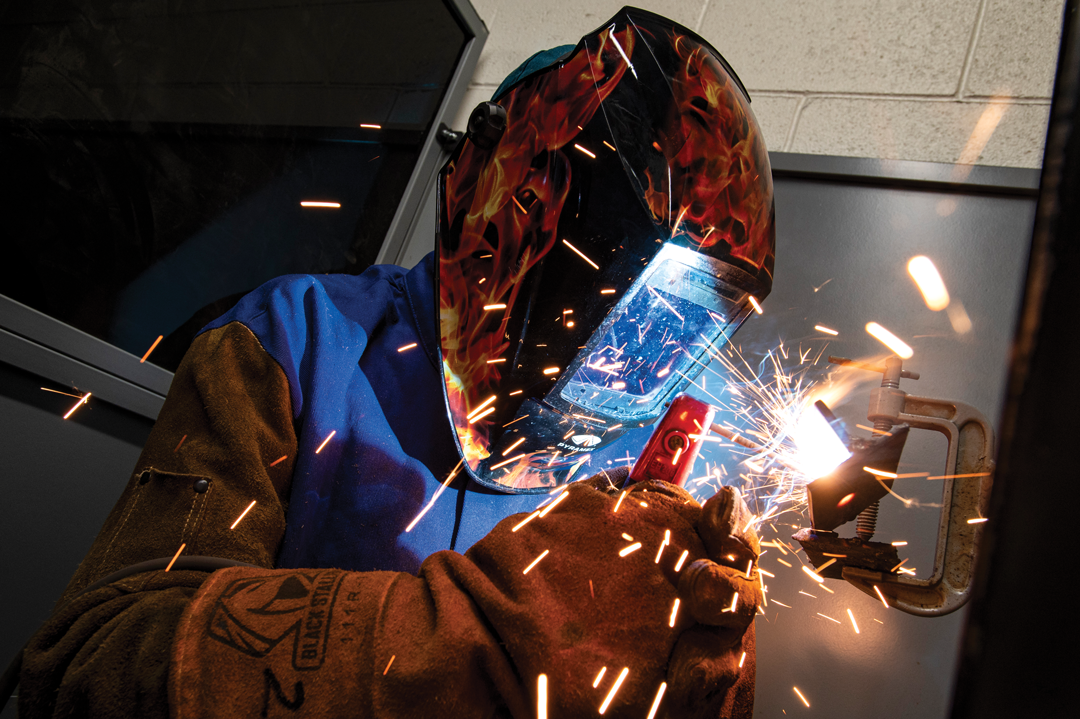Jason Visnic sat through school feeling bored and frustrated. He is one of those people who learns better from doing something than from listening to a lecture in a classroom.
“Twelve years of that was enough,” he says.
So, instead of going to college, he decided to work in the trades.
Visnic began apprenticing with a local electrician in 2000. He received his master electrician license in 2008 and went out on his own. He weathered the economic downturn of the late 2000s and hired his first employee by 2011. Now Visnic runs a crew of 34 employees and offers plumbing, heating and air conditioning services with his Johnstown-based company, Limelight Services.
Despite Visnic’s success story, there is a shortage of skilled professionals across all industries in the trades.
Associated Builders and Contractors, a national trade association, reported that the shortage of construction workers reached half a million last year. In early 2023, Electrical Contractor Magazine reported an ongoing electrician shortage that is likely to increase even as energy consumption continues to grow. Other industries report the same looming deficits for truck drivers, welders and mechanics. The list goes on.
Visnic doesn’t mince words about why there is a shortage.
“People look down on the trades,” he says. “It used to be, ‘Well, you’re too dumb for college, so why don’t you go put on a toolbelt.’ And what they don’t realize, in my opinion, is that it is a way more reliable route to go to earn six figures. All you have to do is be dedicated to being good at what you do.”
Visnic’s top-level management does, in fact,
make six-figure salaries, and his new employees are offered on-the-job training, taking home paychecks as they hone their skills.
“It is a much clearer pathway,” he says. “You can go to college, but you are not guaranteed a job.”
And you may be stuck with a mountain of debt afterward, he adds.

Jason Visnic, owner of Limelight Services. Photo by Jordan Secher.
Getting lost on the path to a career
Students today are often unaware of the many career pathways open to them, says Tanya Alcaraz, director of career and innovation for Poudre School District. The assumption is that college is the next step, though the trades may offer a much better option for some.
“There is a lack of knowledge about what the career pathway looks like and how to engage in an apprenticeship,” Alcaraz says. “Kids know how to get to a four-year college; they are not sure how to get to the other pathways. The question they are all being asked is, ‘What college are you going to?’ We’re working on shifting that mindset from college or career to college and career,” she says.
School systems are revamping their programs to introduce students to different career paths at earlier ages. Poudre School District recently added its Futures Lab, a space to hold events and help students and families explore a wide variety of careers.
The state is also working to address the shortages by creating a task force, The Big Blur, which is designed to eliminate the division between high school, college and career training. The Colorado Department of Education has announced a new initiative, Alcaraz says, which would redesign 11th and 12th grade to help students have a high school experience while earning college credits at a community college, giving them access to work-based learning and the workforce.
It’s not only the students who need to be educated, she says. “That’s the other piece; parents have to feel okay with their student not choosing a four-year college.”
Alcaraz calls out manufacturing as an example for parents who may not be as open to a non-college career path.
“They can see now that manufacturing is clean,” she says. “They can go onto the Woodward floor and see that it is beautiful, it is high-tech and many of their employees started on the manufacturing floor and worked their way up to the executive level.”
Greeley-Evans School District 6 has a similar program. Their Career and Technical Education Center offers education through the two-year program to help students earn industry certifications and concurrent college credits in five career tracks: cosmetology, education, electrical, IT/cybersecurity and welding.
“Students in the program get the benefit of concurrent enrollment to earn skills and college credits,” says Jennie Schilling, director of career and technical education at District 6. This allows students to be able to “come back into post-secondary education as they want to.”
The center just wrapped up its first year, and students in 10th, 11th and 12th grades must go through an application process
to be accepted. Once they are, they split their school day between their high school and the center. The program currently has 100 seats, and they hope to increase that to 140 next school year.
“This gives students a real head start, and they don’t have to take on student loan debt,” Schilling says.
She calls it a true win-win.
“It’s amazing to watch students and their engagement and excitement in what they are doing,” she says.

Students at the Futures Lab work together to design and build sheds for the community. Photo courtesy of Poudre School District.
_________________________________________
Explore the Trades
Local resources abound for students interested in the trades and alternate career paths. These include:
Poudre School District, Futures Lab. The lab allows students and parents to experience nine different career pathways, from construction to automotive services. fut.psdschools.org
Greeley-Evans School District 6, Career and Technical Education Center. The center offers two-year concurrent programs for students in 10th, 11th and 12th grades. greeleyschools.org/domain/11115
Thompson School District, Career and Technical Education Pathways program. A program that walks students through a variety of post-secondary career paths. tsd.org/academics/career-college-readiness/cte
High Plains Library District, LINC Library Innovation Center. The library is outfitted with makerspaces and industrial areas for hands-on learning (read about LINC Library in last month’s issue). mylibrary.us/linc
Aims Community College. The college offers certificates for automation, electrical, welding, carpentry, emergency medical technicians and much more. aims.edu
Front Range Community College. In addition to certificates and apprenticeships, Front Range offers two-year degrees in automotive technology and welding, as well as heating, ventilation, air conditioning and refrigeration. frontrange.edu
Northern Colorado Construction Sector Partnership. A community-based program focused on the design and construction industry. The organization holds a Construction Con every year, providing students with a hands-on, immersive construction experience.







